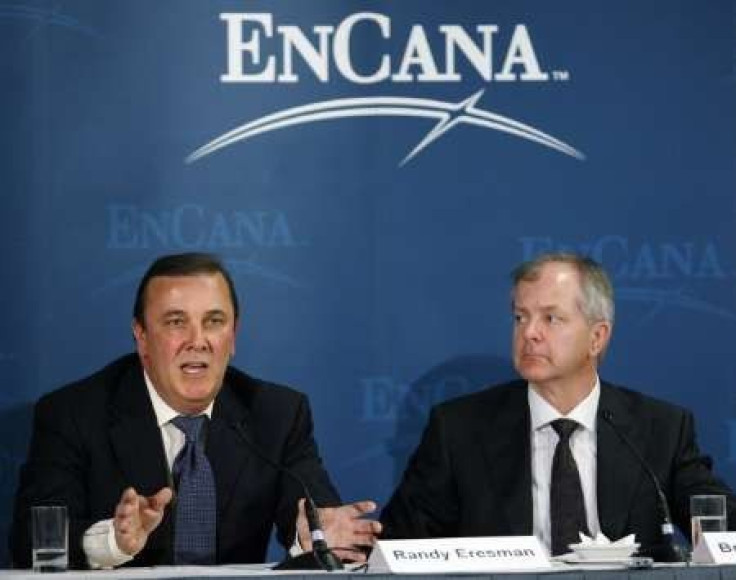EnCana's Blockbuster $5.4 billion deal with PetroChina called off

Encana Corp. (ECA) announced on Tuesday it's $5.4 billion joint venture with a unit of PetroChina Co. has been called off over unresolved issues after nearly a year and four months of their partnership when they first announced the joint venture in February.
There are questions as to what exactly went wrong during the negotiation of the operating agreement.
The agreement was to develop Encana's Cutbank Ridge reservoir in British Columbia and Alberta, with agreement of 50 percent stake where Encana would lead for the initial two -year period. The deal would have given PetroChina ownership over 255 million cubic feet of natural gas production per day, one trillion cubic feet of proved reserves, and 635,000 acres of land in Alberta and British Columbia.
Encana holds about 1 million acres of land in Cutbank Ridge and produced the equivalent of 401 million cubic feet of gas a day from the area last year, according to its website.
The problems with the Encana deal appears to be rooted in a struggle for control with the possibility of the Chinese firms demanding greater control over their Canadian energy investments that seems to prove important considering with the pools of so-called shale gas that formed the heart of the deal. Chinese authorities have estimated China is home to some 900 trillion cubic feet of shale gas - a surpassingly vast resource - and has looked to foreign investments as a way to secure the technological expertise to tap it in order to harvest it more efficiently. They certainly haven't lost interest in shale gas. China's interest in North American energy will not dissipate.
Growing global demand for Canada's natural gas has helped advance a series of projects to export the energy to Asian countries, where it can fetch higher prices.
Still, few expected the joint venture deal to cancel of Chinese spending plans in Canada. PetroChina, for example, has established a permanent Calgary office. Only 10 days ago, it sent representatives to an investment workshop in the city.
Encana is well under way looking at other deals for its pipeline and processing assets in the area which now will be offered up in portions through a variety of joint venture opportunities, it appears the negotiations between Encana and PetroChina were anything but smooth foretelling a difficult partnership, giving a huge setback to both the parties. Encana would have to secure a significant portion of that capital in order to develop Cutbank Ridge.
The value of oil and gas deals in Canada plunged 35 percent to $11 billion through June 15, the biggest drop since 2003, data compiled by Bloomberg show. Energy accounts for almost 7 percent of the nation's gross domestic product, according to the Energy Council of Canada.
Gas prices on the New York Mercantile Exchange are averaging $4.289 per million British thermal units this year, a 52 percent decline from the $8.899 average in 2008.
Encana fell 77 cents, or 2.6 percent, to C$28.70 at 9:30 a.m. on the Toronto Stock Exchange. PetroChina rose 20 cents, or 1.8 percent, to HK$11.08. at the 5 p.m. close of Hong Kong trading.
There are several things that are working against Encana right now -in addition to a failed transaction with no sign of hikes for a price of $6 per thousand cubic feet until 2016, it's tough to get excited about a pure play natural gas company, even if its supply cost is $3.70 per mcf and the lack of infrastructure aiming for opening to overseas markets.
Encana said joint venture talks with potential investors are ongoing for other projects, including the Horn River shale lands and the Greater Sierra field. The company expects to receive revenue from asset sales of $1 billion to $2 billion, up from a previous forecast of $500 million to $1 billion, according to the statement today.
© Copyright IBTimes 2024. All rights reserved.











